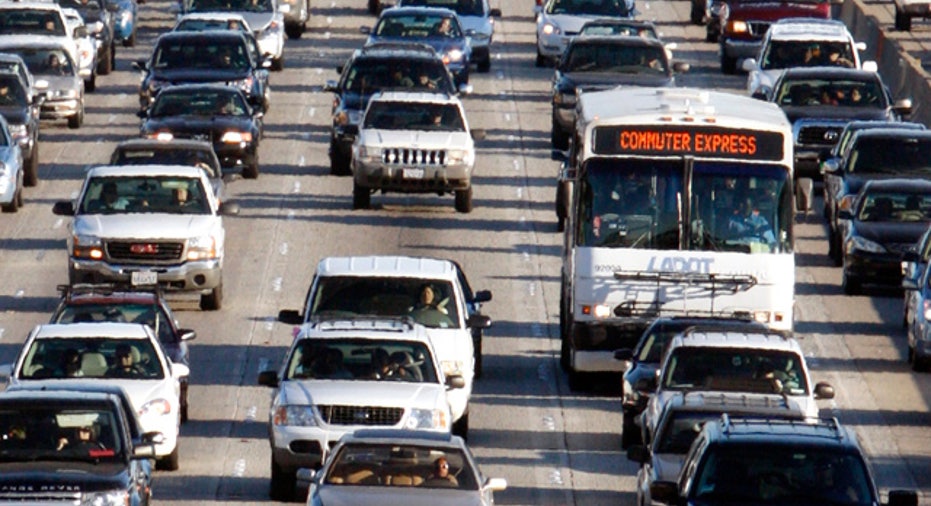Car Insurance Deal-Breakers: Cancellation and Non-Renewal

If your car insurance company considers you to be a high-risk or deadbeat driver, it may break up with you by canceling your coverage. As with any relationship, it's wise to know ahead of time what those deal-breakers are and how to get yourself back out on the market should you find yourself without auto insurance.
Fortunately, car insurance companies take cancellation very seriously and will not eliminate your coverage for a traffic ticket or two. Consumers are protected by regulations established by each state's insurance commission that ban insurance cancellations under most circumstances.
But that doesn't mean your insurer can't kick you to the curb.
Cancellation or nonrenewal?
Auto insurance policies are usually in effect for six to 12 months, and at the end of each policy period, your insurance company has the option of a nonrenewal for a variety of reasons, says David Suarez, director of marketing for Mercury Insurance in Brea, Calif.
A cancellation occurs in the middle of a policy period or during the initial 30 to 60 days of a new policy, depending on the state.
"In most states, during the first 60 days of a new insurance policy, an insurance company can cancel your insurance if they learn information that was not disclosed during your initial application process," says Mario Morales, senior corporate underwriting consultant for MetLife in Warwick, R.I. "Beyond that initial 60 days, your policy will rarely be canceled. Insurance commissioners look at this almost like an apartment lease: You can't be thrown out of your apartment in the middle of a lease without serious cause."
If an insurance company wants to stop insuring you because you have a DUI or too many tickets, they generally will wait until the end of your policy and issue a nonrenewal rather than cancel your policy immediately, says Morales. (See: "Got a ticket? You could be paying for years.")
How to get your car insurance canceled
Suarez says that the main reason a policy is canceled midterm is for nonpayment.
"State insurance commissions mandate the timing, such as a written notice that the payment is late and a period of 10 to 30 days to bring the payments up to date before the policy is canceled," says Suarez.
Morales says state regulations specify other reasons an insurance company can cancel your policy, typically for some activity that indicates you are at an exceptionally high risk for an accident.
"Some states allow a cancellation for increased risk, especially if you misrepresent yourself," says Suarez. "For example, if you fail to disclose that your teenager was driving instead of you when an accident occurred, that would be considered a breach of contract." (See: "Truth or consequences: Lying to insurers is costly.")
Morales says that while a DUI itself is likely to trigger a nonrenewal from most insurance companies, in some states you also risk a midterm cancellation if the DUI involves bodily injury and substantial damage. (See: "DUI and car insurance: What happens next?")
"If you're involved in a hit-and-run or something so egregious that the insurance company feels it's not 'if' but 'when' you'll have another accident, then they may have grounds for a cancellation," says Morales. "Another reason you could be canceled is if you provide fraudulent information such as arranging for your car to be totaled in order to stop making payments and to collect the insurance benefit."
Post-cancellation options
If you receive a cancellation notice because you haven't paid your premium, most insurance companies will reinstate you if you bring your account up to date within a specified amount of time, says Morales.
"Some insurance carriers will reinstate you back to when the policy was canceled, while others will not cover you for the time period when you hadn't paid your premiums," says Suarez. "You wouldn't be able to make a claim for anything that happened during the time your policy lapsed."
If you cannot bring your account up to date or you have been canceled for a reason other than non-payment, your policy is not likely to be renewed. You'll have to get car insurance quotes from other companies. Suarez says you may be better off reducing your insurance coverage if you can't afford it rather than allowing it to be canceled and ending up paying a higher rate. (See: "5 ways to compare car insurance companies.")
"Insurance companies in some states can charge you a higher rate if your insurance was canceled for any reason other than nonpayment or if your insurance coverage lapsed for more than 30 days," says Suarez.
Depending on the reason for your cancellation, some insurance companies may refuse to sell you a policy. In that case, you're best bet is to turn to your state's assigned-risk pool for coverage.
"Every state has an assigned-risk pool that offers minimal car insurance coverage, although the premiums will be higher than those offered by the traditional voluntary insurance market," says Morales. (See: "What is an assigned-risk pool?")
Higher premiums are likely to follow a car insurance cancellation in most states, so your best move is to do everything possible to avoid cancellation.
The original article can be found at Insurance.com:Car insurance deal-breakers: Cancellation and non-renewal



















